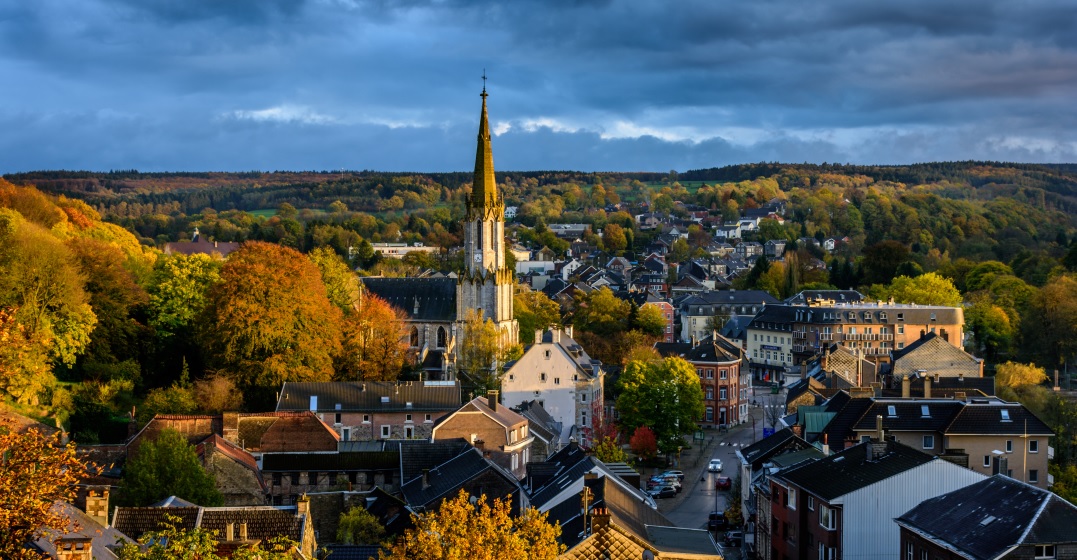by Laura Jones
Published on October 12, 2023
Belgium is known for its waffles, beer and charming cities like Bruges. Or should that be Brugge or even Brügge? Belgium is a multilingual country, and most of the population speaks French or Dutch (Flemish). However, there’s a third official language in the country. A small but significant part of the Belgian population speaks German as a first language. Let’s learn more about German-speaking Belgium.
The German-speaking part of Belgium is in the east of the country, near the border with Germany. The region is known as Ostbelgien and is mainly around the Eupen and Belgian Eifel regions. It encompasses nine municipalities, collectively known as the German-speaking Community of Belgium (Deutschsprachige Gemeinschaft Belgiens).
Around 78,000 people live in the German Community in Belgium. That’s a relatively small number compared to the total Belgian population of over eleven million.
In Ostbelgien, the German spoken is very similar to the standard German used in Germany. This is because the region has only been part of Belgium since 1920, so the people there haven’t had a lot of time to develop a local dialect. There are a few instances of mixing French and German with terms like der Frigo in use (der being German, frigo French).
This is in contrast to Austria and, particularly, Switzerland, where the German spoken is quite different from High German. So, if you speak German, you’ll get by just fine in German-speaking Belgium.
We mentioned that the German part of Belgium became a part of Belgium in 1920. After World War I, the region was annexed to Belgium as part of the Treaty of Versailles. Following a brief return to German control during World War II, the region once again became part of Belgium.
In 1973, the first meeting of the Council of the German Cultural Community was held. The Council later became the Parliament of the German-speaking Community, which has the power to issue decrees in the region.
Most of the German-speaking part of Belgium comprises rural communities. One exception is the city of Eupen, where the Parliament is based. While Eupen isn’t a bustling metropolis, the center is full of lovely baroque-era buildings, and it’s a great base for outdoor activities. You can learn about the clothmaking industry that flourished here in the city by visiting the Atelier Kunst und Bühne and the Haus Grand Ry. Outside of Eupen, you’ll find Belgium’s biggest reservoir, where you can hike, bike and go climbing.
Unfortunately, Belgium is not a multilingual paradise. The Flemish Community in the region of Flanders resents what they see as the dominance of the French Community, and the main political parties there would like more Flemish autonomy. And when the German-speaking Community rebranded to Ostbelgien in the late 2010s, it too raised fears of separatism. However, the locals in Ostbelgien insist that they are loyal to Belgium and not planning on leaving.
While not as prominent as the Dutch and French-speaking communities, the German-speaking community in Belgium holds a unique and important place in the country’s cultural and linguistic landscape. Speakers of High German will feel perfectly comfortable in Ostbelgien, and it’s a wonderful place to practice the language. If you’re interested in visiting, head for the city of Eupen and then explore more of the countryside from there.
